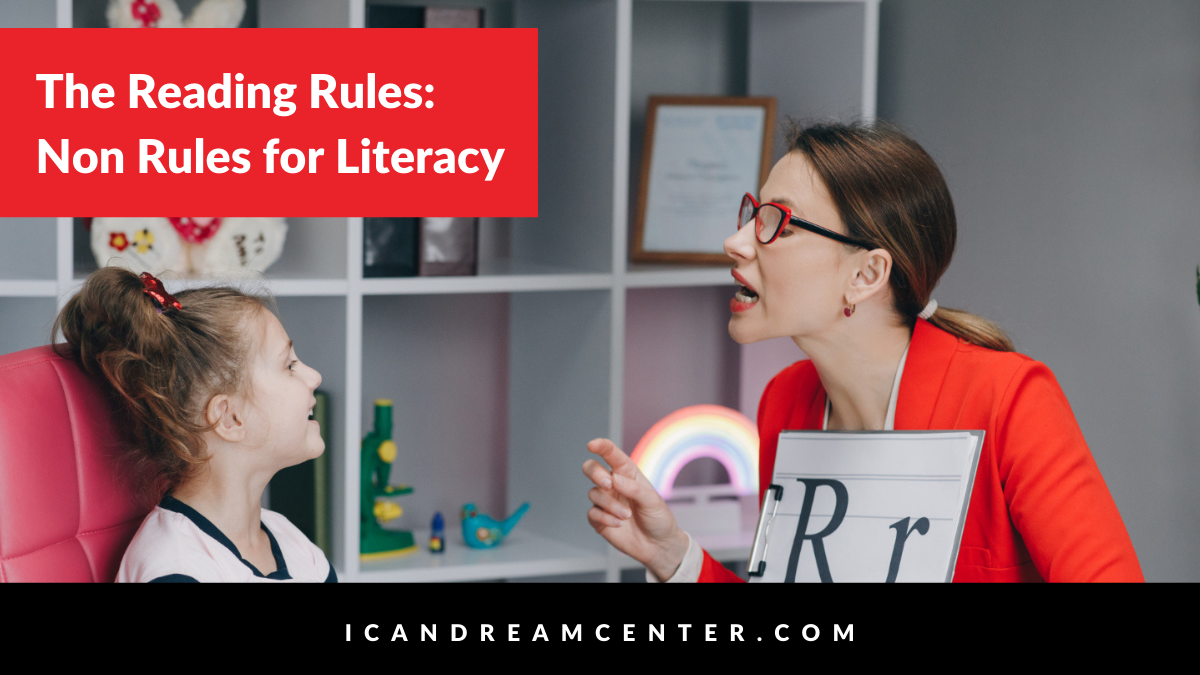
The Reading Rules: Non Rules for Literacy
Teaching students in special education classrooms can be a complex task with so many varying needs and challenges. Here are a few quick tips for working with special education students at home this summer!
Autism Spectrum
When working with students on the autism spectrum, every student will be unique. But there are common characteristics such as sensory issues, fixation, and a need for consistent routines.
- It is common for students with autism to have sensory issues that make certain tasks uncomfortable. Writing can be particularly uncomfortable. It is important to find the right writing utensil for the student or to accommodate writing tasks with assistive technology such as computer-based learning.
- When a student has sensory issues or is non-verbal, instructional software may be a better fit for reading instruction—taking care to help students avoid tasks on the software that they may fixate on like a game or activity they enjoy.
- If a student is using instructional software, you may need to teach them how to use keyboard shortcuts rather than the mouse if the student finds the mouse frustrating.
Cognitive/Intellectual Disabilities
When working with students with cognitive and intellectual disabilities, it’s important to first gauge what they currently know. This can be as simple as colors or letters; then, you can connect reading instruction to those things.
- Start with letter sounds.
- Teach one letter and one skill at a time; don’t connect skills in one lesson.
- Keep lessons short.
- Don’t use nonsense words.
- Use posters for a visual reference of skills taught.
- Limit information to the student’s ability.
- Use books with one sentence per page.
- Reading aloud and listening to audiobooks can help a student develop a love of reading.
- Adjust lesson passing percentages to match goals on the student’s IEP.
- Give students extra rewards to foster motivation.
Local libraries are a great source of information when it comes to all things reading. Befriending a good librarian and enlisting her/his help is an invaluable way to support your student for years to come!
